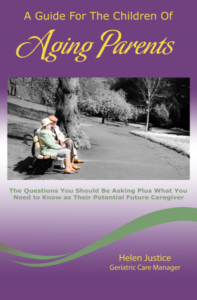
There are few things in life more devastating to a senior than losing their spouse. Whether the spouse is your natural parent, step-parent, or your parent’s partner, it’s important to understand the level of despair and grief your parent is experiencing.
Understand that there is no definite mourning period, nor is there an amount of time that needs to pass for things to return to ‘normal’. People don’t get through the pain of the death of a spouse easily, though they do eventually learn how to cope with it as time passes. Some parents will want to talk about the deceased, sharing memories that you both can talk about. Some parents will avoid the subject completely, especially if the death was painful or unexpected. Take your cue from your parent.
While you are adjusting to the level of discussion your parent is willing to have, you can help by attending to their physical needs, making sure they aren’t left alone for too long as depression from isolation can set in easily.
In the meantime, if the deceased is your parent, you must cope with the loss while also helping your grieving parent. Remember, losing a spouse is very different than losing a parent so don’t attempt to assure them that you understand how they feel. But do share your own feelings of loss and memories – if your parent is ready to share with you.
Something to keep in mind is that your parent may appear to be coping quite well with the loss at the moment and then experience grief months after the fact. Delayed grief does happen and it’s important that you recognize the signs so that you can help your parent through it. Those signs include:
Forgetfulness. Your usually organized parent is missing appointments, locking their keys in the car, or mailing unsigned checks to pay the bills.
Disorganization. Unable to manage their time, taking longer than usual to complete everyday tasks.
Unable to Concentrate. Unable to finish a book or conversation without the mind wandering to a different topic.
Lack of Interest. Loss of interest in things they used to look forward to doing. They may say things like “what’s the use?” or “why bother, who cares?”
While all of these things can be alarming, in most cases by encouraging your parent to talk things out and to express their feelings, these things pass. If at any time you think your parent may do something harmful or be placed in a potentially dangerous situation with driving or around equipment, step in and offer a warning to remind them to be extra careful right now. If you believe your parent requires more than a reminder, talk to the primary care physician or care manager.



Stay Up To Date With AWGCM